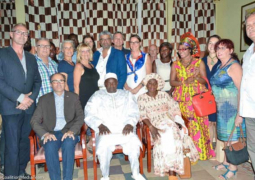In her remarks, Haddy Mboge-Barrow, acting national coordinator NGBV, said since its establishment in 2009 the network never relented in its efforts to combat gender-based violence through training and sensitization programmes, designed to educate and create awareness in the public and in critical institutions on the menace.
It was against this backdrop that the network organised the forum to strengthen the capacity of senior army officers on gender-based violence, and on the national laws relating to such violence.
General Madani Senghore, naval chief of staff, said gender-based violence includes, but is not limited to domestic violence, sexual harassment, rape, female genital mutilation, forced marriage, trafficking in women, forced prostitution, forced pregnancy, systematic rape, sexual slavery, forced abortion, deprivation of economic independence, discrimination and humiliation of women anywhere.
According to General Senghore, gender-based violence reflects and reinforces the inequalities between men and women, adding that some cultural or traditional beliefs, as well as social structures usually tolerate or even encourage gender-based violence, that may have detrimental effects on those affected.
He also stated that violence against women and girls is a global epidemic that affects their safety, personal health and their ability to earn a living and independence; and, therefore, has to be tackled in all forms.
The United Nations estimates that at least one in every three women globally would be beaten, raped or otherwise abused during her life-time.
The same study indicated that in some countries, approximately one in four women and girls over 15 years old may experience sexual violence by an intimate partner, at some point in their life.
In 2008, the United Nations Security Council adopted a resolution which declared that rape and sexual violence are being used as weapons of war, and demanded an end to sexual violence against civilians in armed conflicts around the world.
He further asserted that the sensitization workshop aimed at combating violence against women or gender-based violence would enhance the capacity of the Gambia armed forces gender unit, which was formed by the chief of defence staff to ensure zero-tolerance for gender discrimination and sexual harassment in the Gambia armed forces.


